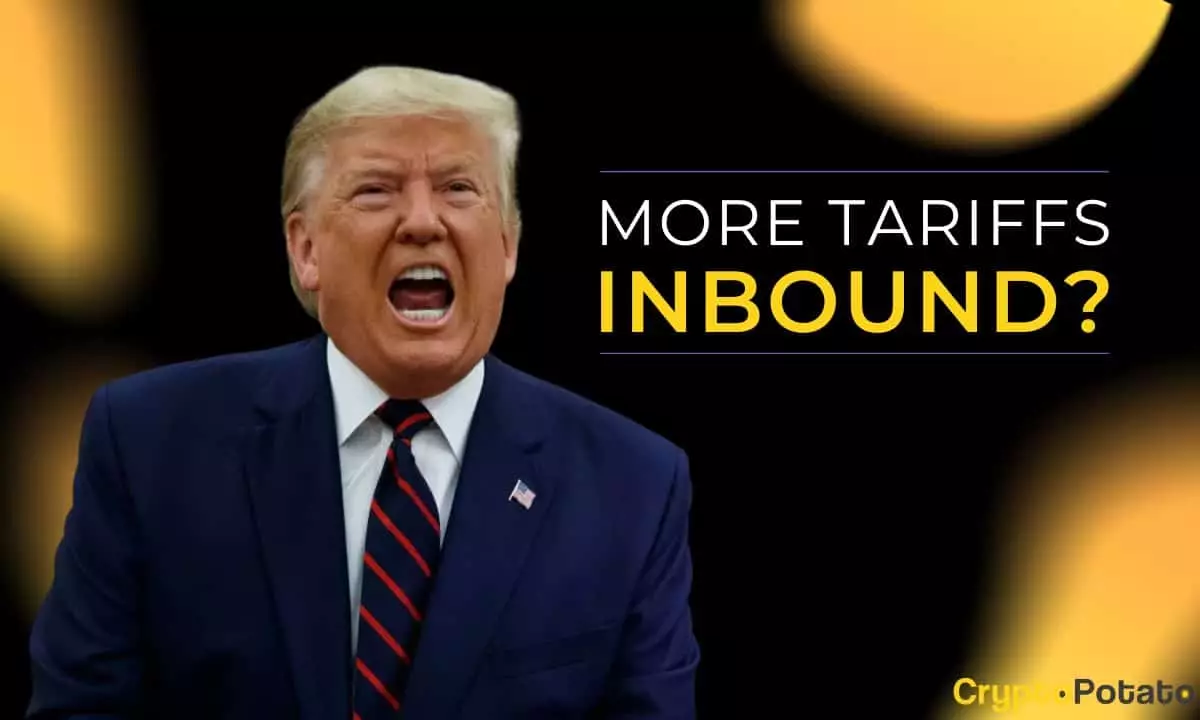In an age where globalization has forged strong economic links between nations, President Donald Trump’s announcement on April 2 — labeled “Liberation Day” — has rippled shockwaves through global markets. Imposing retaliatory tariffs that blanket nearly all countries with a 10% levy, and even higher on select nations, is a dramatic shift into a protectionist realm. While Trump touts these measures as necessary to rectify the national trade deficit, the broader implications suggest an impending economic mess that risks not just a trade war but a recession.
The intentional framing of these tariffs as “reciprocal” is misleading. Instead of fostering a sense of harmonious give-and-take, they are swiftly provoking retaliatory measures from dominated partners. China, for instance, is not simply sitting idle; it has retaliated with a staggering 34% import tax and targeted American firms by restricting exports of critical minerals. Such tit-for-tat escalation only serves to degrade international commerce, creating a web of distrust that threatens decades of economic progress.
Market Panic Unleashed
In the immediate aftermath of Trump’s announcements, the stock market felt the impact of what one can only describe as economic panic. Over $5 trillion evaporated from global markets, leaving investors scrambling for the hills. The S&P 500 plummeted by more than 6%, with major indices indicating that a bear market might be at hand. Tech giants like Apple and Microsoft, typically considered safe havens, turned into casualty figures. Their fallen stock prices are a reflection not just of immediate concerns, but a grim portent of the long-term damage that tariffs could unleash on innovative industries.
The reactions are somewhat telling of the sentiment among investors. The swift downturn demonstrates a collective apprehension about future economic stability, embodying the worries of many economists who fret that these tariffs are more than temporary blips—it can be a herald of a much darker economic fate. Stocks are not simply paper; they represent the economic vitality of companies and workers alike. Losing $5 trillion should not be dismissed casually.
Bitcoin’s Curious Resilience
Interestingly, amid this financial storm, Bitcoin appears to have etched out a curious resilience. Traditionally seen as a contemporary refuge during times of market distress, Bitcoin’s recent maneuvering shows a stark deviation from stocks that have been tumbling downwards. A mere 0.3% reduction in its valuation over the same timeframe is something that many financial analysts would consider remarkably stable. Some are concerned, however, that this detachment may simply indicate a brewing storm in cryptocurrency markets, reflecting growing investor sentiments toward assets that may not be tethered to traditional economic frameworks.
It’s almost ironic to note that Bitcoin, born out of a financial crisis, seems to be adopting a contrarian stance amid one of the largest market corrections in recent history. MacroScope’s commentary about Bitcoin’s “positive divergence” hints at a potential return to positive gain, perhaps signaling a desire among investors to disconnect from the volatility and uncertainty of political-driven market maneuvers. However, this scenario might also create disproportionate risks, as Bitcoin remains uncharted territory for many investors and has its own set of vulnerabilities.
The European Union’s Calculated Approach
In stark contrast to Trump’s blunt force strategy, the European Union’s approach has been marked by cautious diplomatic overtures. Trade Commissioner Maroš Šefčovič has issued firm yet measured responses, aiming for “meaningful negotiations” while asserting the EU’s readiness to protect its own interests. This nuanced posture speaks volumes about the value of wisdom in international relations. Rather than perpetuating an adversarial relationship, the EU appears to be positioning itself for a long game, suggesting avenues for dialogue that could realign trade toward mutual benefit.
The juxtaposition of these two approaches highlights an alarming ideological divide: while Trump guns blazing toward economic self-sufficiency, much of the world realizes that collaborative negotiation often yields better results than protracted conflict. The EU’s balanced stance reflects a critical understanding of interconnected economies—one that could shine a light on the pitfalls of rash decision-making.
A Disrupted Global Economy
The broader picture is equally unsettling. A trade war ignited by the US is not a simple matter of tariffs; it’s an existential threat to global commerce that might topple alliances built over decades. The ramifications of these tariffs extend far beyond numbers in a ledger, threatening the foundations of wealth that previous generations fought to create.
What is evident is that should these trade tensions escalate further, it risks fracturing international supply chains, inflating consumer prices, and stunting economic growth on unprecedented scales. The consequences might not just be confined to the realm of trade; they could ripple through employment sectors, investment landscapes, and the overall fabric of economic cooperation that has made globalization possible.
Truly, in this precarious moment, one cannot help but wonder whether the collective sane response is to reevaluate the path we are heading down or to brace for what’s shaping up to be a painful economic reckoning.
















Leave a Reply